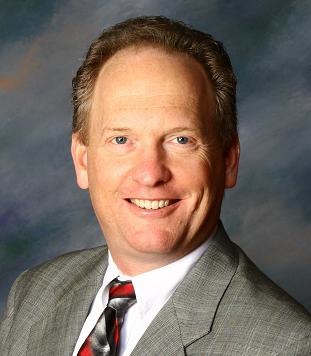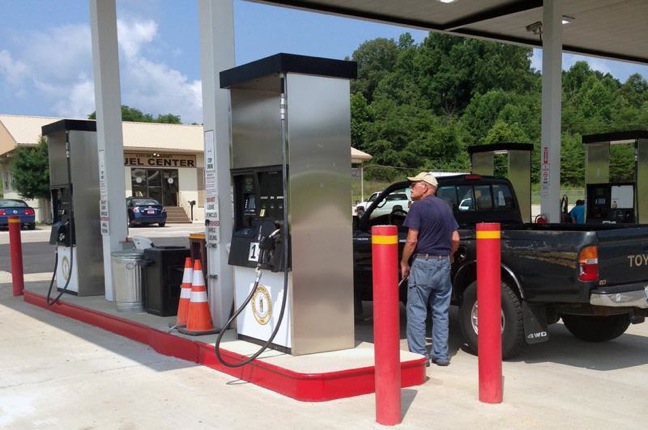It’s long been said that everyone wants to sell groceries. In Kentucky, everyone wants to sell fuel. At least that’s the impression that’s being given as the city of Somerset began public fuel sales July 17 from facilities that once only fueled its vehicle fleet.

“…They have expanded that facility to where now they are selling fuel to the public from a government,” Ted Mason, executive director of the Kentucky Grocers Association & Kentucky Association of Convenience Stores (KGA/KACS), tells The Shelby Report. “They are specifically competing against businesses that pay taxes in their city.”
Among those businesses are Kroger, Speedway, independent c-store operators and others.
The city reportedly was responding to complaints from the public that Somerset is an “island of high gasoline prices,” when it spent more than $60,000 to install 10 gasoline pumps beneath a kiosk for public use, according to the Somerset Commonwealth Journal.
Somerset, south of Lexington and less than 50 miles from the Tennessee border, is reportedly the only municipality in the nation to sell fuel to the public. The site is located off Clifty Road at 244 Chappell Dairy Rd.
“We’re just opposed to the slippery slope that this could open up,” Mason says. “The city of Somerset is primarily thinking that gas prices in Somerset have been out of range of other areas, when there’s information from GasBuddy that clearly shows that Somerset is well within the norm of the varied gas pricing across the state.”
City of Somerset officials contend that isn’t so. According to a July 23 story in the Journal, the city’s mayor says the fuel center is forcing a decline in prices at other stations. He reportedly says he doesn’t care if the Somerset station “…doesn’t sell a drop of gasoline” if its existence keeps prices down.
But it appears the city is making a profit.
According to the Journal’s July story, gasoline is currently being delivered to the fuel center for between $2.98 and $3.04 a gallon. Based on the $3.36 price at the pumps, it would indicate the margin of profit at the pumps would range from 32 to 38 cents a gallon.
The fuel center is open 24 hours a day. It is tended during the day and sells to credit card customers after hours.
Mason says there are “open record requests that have been submitted legally to better ascertain what is going on with the numbers and questioning what is their arrangement of the facilities with their supplier.”
KGA/KACS is not the only one opposed to the fuel center. The Kentucky Petroleum Marketers Association, the Kentucky Retail Federation and NACS, the national association for convenience and fuel retailing, all have spoken out against the facilities. State Sen. Chris Girdler (R-Somerset) has publicly referred to the setup as “socialism.”
“By subsidizing this business venture with taxpayer dollars, the consumer in reality is paying sufficiently more for gasoline,” he says. “Their taxpayer dollars are covering the business cost, and they are paying at the pump.”
Mason agrees and asks, “What about consumer commodities? What about other items the city of Somerset feels are too high—are they going to build a dairy if milk prices are too high?”
Mason also worries about the impact on future business in the city.
“What does that tell a business? Is anybody in their right mind going to go to Somerset now and want to open a new facility with fuel? Does it do something to your economic development? Does it send a message to the business community that if I invest in this area, will the government for some reason decide that they’re going to be my competitor?
“The key to this is that it’s taxpayer subsidized,” he adds. “So a business, a convenience store that’s operating or even the supermarkets that sell fuel there, you’re paying your taxes that then are turned around and used against you to subsidize this fuel center.”
In the feature photo at top: A customer puts gasoline in his truck at Somerset’s city-owned fuel center. (Photo by Emil Moffatt, WKU Public Radio)
This portion of the 2014 Kentucky market profile story by Kristen Cloud also appears in the September print edition of The Shelby Report of the Southeast.

